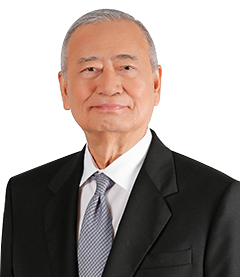-
Audit approach overview
Our audit approach will allow our client's accounting personnel to make the maximum contribution to the audit effort without compromising their ongoing responsibilities
-
Annual and short period audit
At P&A Grant Thornton, we provide annual and short period financial statement audit services that go beyond the normal expectations of our clients. We believe strongly that our best work comes from combining outstanding technical expertise, knowledge and ability with exceptional client-focused service.
-
Review engagement
A review involves limited investigation with a narrower scope than an audit, and is undertaken for the purpose of providing limited assurance that the management’s representations are in accordance with identified financial reporting standards. Our professionals recognize that in order to conduct a quality financial statement review, it is important to look beyond the accounting entries to the underlying activities and operations that give rise to them.
-
Other Related Services
We make it a point to keep our clients abreast of the developments and updates relating to the growing complexities in the accounting world. We offer seminars and trainings on audit- and tax-related matters, such as updates on Accounting Standards, new pronouncements and Bureau of Internal Revenue (BIR) issuances, as well as other developments that affect our clients’ businesses.
-
Tax advisory
With our knowledge of tax laws and audit procedures, we help safeguard the substantive and procedural rights of taxpayers and prevent unwarranted assessments.
-
Tax compliance
We aim to minimize the impact of taxation, enabling you to maximize your potential savings and to expand your business.
-
Corporate services
For clients that want to do business in the Philippines, we assist in determining the appropriate and tax-efficient operating business or investment vehicle and structure to address the objectives of the investor, as well as related incorporation issues.
-
Tax education and advocacy
Our advocacy work focuses on clarifying the interpretation of laws and regulations, suggesting measures to increasingly ease tax compliance, and protecting taxpayer’s rights.
-
Business risk services
Our business risk services cover a wide range of solutions that assist you in identifying, addressing and monitoring risks in your business. Such solutions include external quality assessments of your Internal Audit activities' conformance with standards as well as evaluating its readiness for such an external assessment.
-
Business consulting services
Our business consulting services are aimed at addressing concerns in your operations, processes and systems. Using our extensive knowledge of various industries, we can take a close look at your business processes as we create solutions that can help you mitigate risks to meet your objectives, promote efficiency, and beef up controls.
-
Transaction services
Transaction advisory includes all of our services specifically directed at assisting in investment, mergers and acquisitions, and financing transactions between and among businesses, lenders and governments. Such services include, among others, due diligence reviews, project feasibility studies, financial modelling, model audits and valuation.
-
Forensic advisory
Our forensic advisory services include assessing your vulnerability to fraud and identifying fraud risk factors, and recommending practical solutions to eliminate the gaps. We also provide investigative services to detect and quantify fraud and corruption and to trace assets and data that may have been lost in a fraud event.
-
Cyber advisory
Our focus is to help you identify and manage the cyber risks you might be facing within your organization. Our team can provide detailed, actionable insight that incorporates industry best practices and standards to strengthen your cybersecurity position and help you make informed decisions.
-
ProActive Hotline
Providing support in preventing and detecting fraud by creating a safe and secure whistleblowing system to promote integrity and honesty in the organisation.
-
Accounting services
At P&A Grant Thornton, we handle accounting services for several companies from a wide range of industries. Our approach is highly flexible. You may opt to outsource all your accounting functions, or pass on to us choice activities.
-
Staff augmentation services
We offer Staff Augmentation services where our staff, under the direction and supervision of the company’s officers, perform accounting and accounting-related work.
-
Payroll Processing
Payroll processing services are provided by P&A Grant Thornton Outsourcing Inc. More and more companies are beginning to realize the benefits of outsourcing their noncore activities, and the first to be outsourced is usually the payroll function. Payroll is easy to carve out from the rest of the business since it is usually independent of the other activities or functions within the Accounting Department.
-
Our values
Grant Thornton prides itself on being a values-driven organisation and we have more than 38,500 people in over 130 countries who are passionately committed to these values.
-
Global culture
Our people tell us that our global culture is one of the biggest attractions of a career with Grant Thornton.
-
Learning & development
At Grant Thornton we believe learning and development opportunities allow you to perform at your best every day. And when you are at your best, we are the best at serving our clients
-
Global talent mobility
One of the biggest attractions of a career with Grant Thornton is the opportunity to work on cross-border projects all over the world.
-
Diversity
Diversity helps us meet the demands of a changing world. We value the fact that our people come from all walks of life and that this diversity of experience and perspective makes our organisation stronger as a result.
-
In the community
Many Grant Thornton member firms provide a range of inspirational and generous services to the communities they serve.
-
Behind the Numbers: People of P&A Grant Thornton
Discover the inspiring stories of the individuals who make up our vibrant community. From seasoned veterans to fresh faces, the Purple Tribe is a diverse team united by a shared passion.
-
Fresh Graduates
Fresh Graduates
-
Students
Whether you are starting your career as a graduate or school leaver, P&A Grant Thornton can give you a flying start. We are ambitious. Take the fact that we’re the world’s fastest-growing global accountancy organisation. For our people, that means access to a global organisation and the chance to collaborate with more than 40,000 colleagues around the world. And potentially work in different countries and experience other cultures.
-
Experienced hires
P&A Grant Thornton offers something you can't find anywhere else. This is the opportunity to develop your ideas and thinking while having your efforts recognised from day one. We value the skills and knowledge you bring to Grant Thornton as an experienced professional and look forward to supporting you as you grow you career with our organisation.
Since about five decades ago, the Philippine economy has gone what appears to be an irreversible downward spiral in comparison with our now 9 ASEAN neighbors. As shown in a World Bank report, in 2020, the Philippines ranked No. 6 in per capita income (gross domestic product) at almost US$3,000. Vietnam appears to be catching up on us soon, making us No. 7 and just ahead of Laos, Myanmar, and Cambodia. We used to be No. 1.
We have been overtaken by Indonesia, which now has about one-a-half times our per capita income; Thailand, a little bit more than double; and Malaysia by almost four times, not to mention Singapore which is way, way up, and Brunei which is also quite high.
This continuing cascade certainly gives the Filipino a terrible feeling. Be that as it may, if we want to be reasonably well-off and catch up with our ASEAN friends, we need to leapfrog. Our neighbors will not be standing still.
The details of growing an economy maybe complex, but the broad view can be drawn simply for easier appreciation.
On the demand side, there is consumption (household and government) and investments. On the supply side, there is economic output (agricultural, industrial, and service). When consumption or investment rises, the increase triggers production of more output which, in turn, creates more employment and therefore more household spending money; and more taxes and hence more money in government treasury; which together drive additional consumption and investments.
Barring any disaster, calamity, or huge human error, a virtuous economic cycle develops. No matter where you start in the cycle, for as long as the action is well thought out, that start will create a chain reaction. Moving up, going round; up, round.
That virtuous cycle can work by itself (a macro characterization of Adam Smith’s ‘invisible hand’). But it is going to be slow or oscillating up and down. It needs a stimulator, who knows what he is doing. In an organized society, that stimulator is the government. Obviously, the Philippines has not been blessed with having the right stimulator for decades.
But we cannot turn back the clock. We just have to move forward. And this time, let’s do it with intense seriousness of purpose and audacity. We need to find the right direction, devise plans and get going, all at the same time. We have to leapfrog.
If I were the next President, that’s exactly what I will do. We will stimulate the growth of our economy and do it continuously.
In doing so, we will first take stock of our resources to find our direction. Let’s start with geography.
The Philippines is beset with natural disasters, especially typhoons that come naturally every year at a frequency that usually exceeds the number of the letters in the alphabet. if we look at the map of the Philippines, the typhoons generally enter the country at its mid-east (Leyte, Samar and the Bicol region) and move northwest (Isabela and Cagayan). This means that economic activities within and around this typhoon belt is disrupted many times in a year, resulting in perennial big loss in productivity and damage in infrastructures.
So, to avoid much of such disruptions, losses, and damages on expansionary economic activities, we need to locate elsewhere any deliberate future economic expansions to such places as southwest Luzon (Zambales, Bataan), West and Central Visayas and the whole of Mindanao, including ARMM. Accordingly, we have to begin constructing the necessary infrastructures in these areas, especially in those places that have suitable coastal waters for building international ports. Doing so will also decongest the National Capital Region and Region IV-A and distribute economic activities more widely and somewhat evenly around the country.
The Philippines is an archipelagic country that makes transportation of goods and people slow and costly. This extra cost makes the country less competitive. For this reason, we will endeavor to connect as many of the islands as possible by surface water, above water, under water and air to ease up travel and reduce transport costs. We will identify all the points where bridges, underwater tunnels and ferries could be built, preferably with private capital participation, and document them in a long-term plan.
We will consider deregulating shipping to the extent safety will allow to increase competition and substantially reduce shipping costs which are presently notoriously very costly.
In air travel, we will equip all existing local airports with night landing facility to increase air travel and reduce airfare for both persons and cargo. We will identify undeveloped inner geographical areas which cannot be reached by sea and build airports where none presently exists. To encourage air travel in moving people and goods to points that are presently unprofitable to the airlines, we will develop a scheme where the government will provide subsidies to airlines at an amount equivalent to the difference between the reasonably profitable seat and cargo occupancy rates and actual seat and cargo occupancy rates. This subsidy will gradually decrease and disappear as the area served by the airport becomes developed. We will apply the same scheme for ferries. The selection of carriers will be done through proper and transparent bidding process.
To speed up economic development, especially in undeveloped areas, we will blanket the entire country with state-of-the-art telephony coverage, wireless and land lines, whichever is suitable to cover the still uncovered geographic area. In completing the coverage, we may need to acquire dedicated satellite connectivity. All these may take a few years. They may have to be funded by the government, but we will explore how we can engage private capital to participate. I cannot, at this time, make an estimate of the total costs of this project as we need to put together the experts who can. But I will do so in due time and will find the funds and develop the financing plans to pay for the costs.
There are other resource areas that contribute to the comparatively higher costs of doing business in the Philippines which naturally deters investing in the country. Setting aside labor cost for the time being, there is electricity, a major business cost. Based on World Bank data for 2019, we have the highest electricity cost, at 18.10 US cents per KWh, in the entire ASEAN, except for Cambodia’s which is slightly higher. We will find ways to decisively reduce electricity costs. We will closely examine the whole process of determining the billing rates for electricity from power generation, distribution, and retailing. In this connection, we will examine why a country like Singapore could charge to its electricity consumers in 2019 only 5.50 US cents per kWH, a much lower rate at only 30% of ours. We may learn and adopt some good practices as a result.
We will establish what is fair to both the power suppliers on the one hand and the ultimate users on the other hand. I believe there is room for reducing electricity cost.
Another important economic resource is manpower. Sadly, at present, we do not have adequately educated manpower to enable us to move rapidly to higher value economic activities.
As pointed in Part 5 of this Commentary Series, nearly half of our adult population are not high school graduates. But as also pointed out in Part 5, we will carry out the remedial measures to fix this obstacle quickly.
We have a somewhat similar problem in the college graduates sector. Based on data released by the Department of Education, among those who graduated in school year 2019-2020, 50% finished business-related and teaching courses, 11% engineering and technology and 10% information technology.
As to the latter two categories, I do not have the details, but I suspect these courses are more on the lower level of skill and sophistication of these disciplines. The said proportional distribution has not changed over the years; the distribution is practically the same among graduates in school year 2014-2015, six years ago.
Clearly, we have inadequate talents to get us to move to higher value economic activities, like research and development, artificial intelligence, and robotics. Or even higher electronics technology; metallurgy; plane, ship and other heavy industrial goods designs; and the like. We need more physicists, especially quantum physicists; biologists; microbiologists; biochemists; metallurgists; and engineers, especially in electronics, hydraulics and aeronautics.
For this reason, we will deliberately shift the education of our young adults to the sciences, engineering and mathematics through exhortation and scholarships, both in local and foreign schools. More generally, we will consider imposing a mandatory minimum level of test results for entry to college, especially in state colleges and universities which are tuition-free, to lift the quality level of our college graduates. At the same time, we will provide a wider range of free vocational studies at public high schools and at Technical Education And Skills Development Authority (TESDA) for those who do not qualify to enter college.
Philippine labor cost is high for the kind of output we produce, and this makes us less competitive. But we cannot possibly reduce labor cost. To offset this higher cost, I am confident that the improvements that we plan to make in Philippine education and vocational training will redound to higher productivity when our young adults go to work and apply their better skills.
Clearly the challenges we face are huge. But we need to take them on—and do it on a faster tempo. We will. And we will overcome. With the help of all our people. (To be continued)
As published in Mindanao Times, dated 16 August 2021




